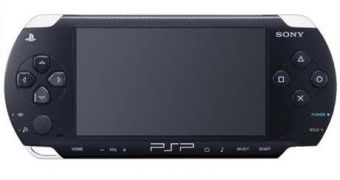Sony’s Worldwide Studios boss Shuhei Yoshida has looked back on the company’s older handheld device, the PlayStation Portable, and talked about some of the key factors that prevented the PSP from becoming truly popular.
Sony released the PlayStation Vita last week and, at least according to the company itself, it’s been quite successful, managing to attract lots of customers with its hardware’s powers and various features.
Now, Sony’s Shuhei Yoshida, the boss of its Worldwide Studios, has talked about the company’s previous device, the PSP. He detailed the two major factors, piracy and the appearance of next generation consoles, which prevented it from becoming very successful.
"For the publishers it's a business and they try to optimize their resource allocation and PSP was unfortunately hit by piracy. Lots of people played our games and third-party games but not necessarily by paying for them," Yoshida told Industry Gamers.
The executive also mentioned that the appearance of next gen consoles, like the PS3 or Xbox 360, made developers forget about the PSP.
"Of course that didn't help the business side and we saw reduced support, especially when they had to work on the newer platforms at that time, PS3 and Xbox 360. And even Sony made the same mistake. We were preparing for PS3, so we had to decide to move a lot of resources from PSP to PS3 – because it was a huge effort to step up from PS2 to PS3. So I was hoping at the time that third parties might help fill in the gaps, but they were facing the same situation, shifting to the new generation of consoles," Yoshida explained.
The Sony executive also highlighted that the PSP was able to deliver graphics similar to the PS2, on the go. Once gamers were able to see next gen visuals on the new home consoles, however, the handheld console didn’t seem as impressive, so popularity dropped once again.
Nevertheless, with the PS Vita it seems that Sony has gotten rid of these problems, pushing a proprietary memory card to eliminate piracy and releasing lots of games to keep people attracted to the device.

 14 DAY TRIAL //
14 DAY TRIAL //